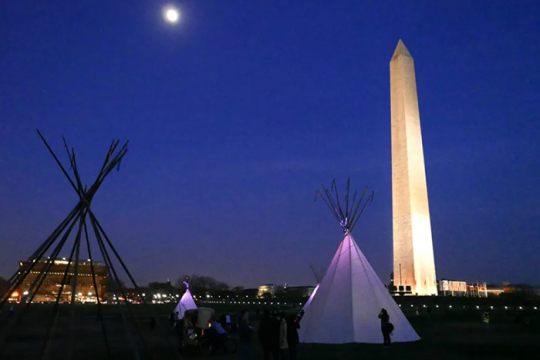Next Wednesday, January 21 marks the fifth anniversary of Citizens United v. Federal Elections Commission, the infamous case in which the Supreme Court struck down a longstanding ban on corporation and union spending in elections. Since the decision five years ago, money has flowed into elections through political action committees (PACs), which contribute money to candidates’ election campaigns. It is estimated that outside groups spent over $1 billion in the 2012 presidential election. More money was spent by outside organizations, often keeping their donor lists secret, than by either candidates’ own campaign. While the total amount of money spent by candidates increased only marginally from 2008, the amount from outside groups quadrupled – thanks largely to the doors opened by Citizens United.
Of the new money pouring into federal elections, over a third of it is undisclosed, meaning that the donors only know the name of the organization funding an ad, but not the donors who actually fund that organization. Financial disclosure is the cornerstone of any law intended to prevent abuse of public office for personal financial gain. Additionally, disclosure is the one form of campaign finance regulation that the Supreme Court emphatically said does not violate the First Amendment but efforts to expand disclosure have stalled in Congress.
The outsized influence corporate donors and wealthy individuals have on political campaigns affects far more than candidates’ campaign expenditures and the funding they have for campaign events or TV ads in the final push before Election Day. Campaign contributions can even affect who can run for office in the first place. Money serves as a substantial barrier for women and people of color seeking to start a campaign, perpetuating their significant underrepresentation in Congress. By electing officials who look like the people they represent, we create more role models for women and people of color to become engaged in public service, encouraging others—particularly young people—to raise their voices on the social justice issues that matter most to them.
Jewish tradition recognizes the distorting effect that money can have on a leader’s ability to govern fairly. Deuteronomy 16:19 teaches, “You shall not judge unfairly: you shall know no partiality; you shall not take gifts, for gifts blind the eyes of the discerning and upset the plea of the just.” In a modern democracy, it is necessary for elected officials to be accountable to all citizens, not just wealthy and powerful moneyed interests. Urge your Members of Congress to support publically funded elections, a key way to combat the corrupting influence of money in politics.
Related Posts
Image

Native American Heritage Month: Continued Support for the Indigenous Population is a Necessity
November 15, 2022
In November, we celebrate Native American Heritage Month. Unfortunately, much of North America is just beginning to recognize the contributions of Indigenous peoples.
Image

Congress Must Expand the Child Tax Credit, a Powerful Tool Proven to Reduce Poverty
November 1, 2022
In the American Rescue Plan of 2021, Congress temporarily expanded the Child Tax Credit (CTC). This measure significantly reduced child poverty during a time of economic fallout and uncertainty, but the expansion expired at the end of 2021. As families continue to struggle to make ends meet, with inflation on the rise, Congress must urgently make the CTC expansion permanent in year-end tax legislation.
Image

Why New Yorkers Should—and I will—Vote “Yes” on New York’s $4.2 Billion Environmental Bond Act in the Next 7 Days
November 1, 2022
RAC-NY undertook a comprehensive and robust effort to educate our congregations and the broader community about Proposition 1 - the Clean Water, Clean Air, and Green Jobs Bond Act - and encourage a "Yes" vote on November 8. We were thrilled to join the "Vote Yes for Clean Water and Jobs Coalition," a wonderfully effective and very broad coalition of advocate agencies led by The Nature Conservancy.
